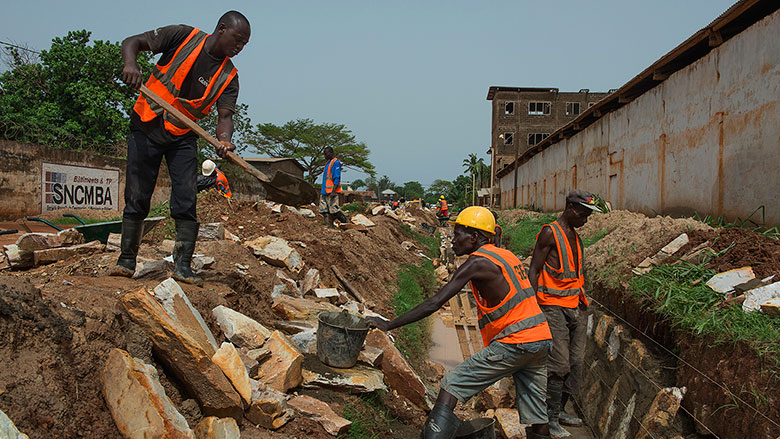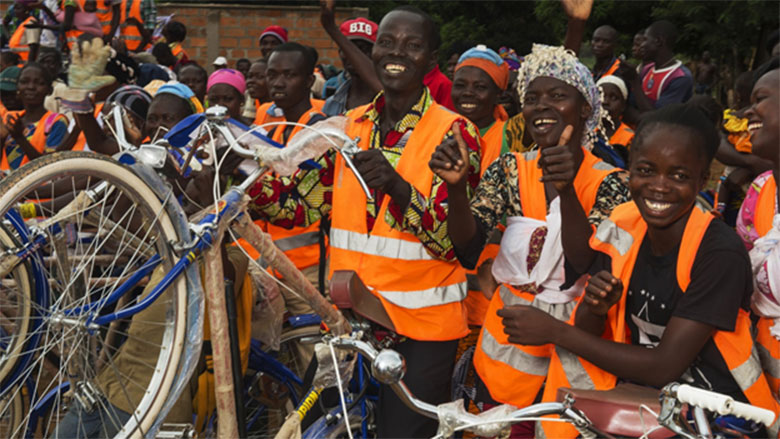Challenge
As a landlocked country bordered by unstable neighbors, CAR is one of the poorest and most fragile countries in the world. The recent conflict shattered the country’s already frail economy, tore its social fabric, and created a devastating humanitarian, human rights, and security crisis. At the peak of the crisis in January 2014, approximately 25% of CAR's population had been displaced with close to 1 million internally and over 200,000 in neighboring countries. That same year, the gross national income (GNI) per capita had plummeted to $600 and the purchasing power parity (PPP) returned to the dismal levels of the 1990s. Infrastructure was destroyed throughout the country, including schools and healthcare centers, and the payment of civil service wages was suspended for the better part of 2013, severely disrupting service provision. The highly aid-dependent government was unable to provide the most basic services and ensure its citizen’s security, further eroding the already weak social contract between the population and the state. The country’s bountiful natural resources, including abundant forests, gold, and diamonds, are mainly under the control of armed groups, which reign over a majority of the territory, thus fueling insecurity and instability. CAR faces the tremendous challenge of having to stabilize the country, while investing in early recovery and lasting peacebuilding efforts aimed at breaking the fragility trap.
Approach
A Country Engagement Note (CEN) was presented to the World Bank Board of Executive Directors in July 2015. The CEN describes the continuation of the crisis response and potential next steps for recovery and development over an 18-month period (July 2015 to the end of 2016). The strategy comprises two phases: (i) supporting stabilization in order to assist international efforts to break the cycle of violence and maintain confidence in the fragile transition; and (ii) preliminary support to recovery and development. The main focus has been on the first phase of the strategy thus far, and in particular the restoration of basic government functions, as well as support to livelihoods and basic social service provision. The engagement is principally focused on addressing some of the primary conflict drivers, and building confidence in public sector institutions. This will in turn assure external support to a fiscally weak government.

